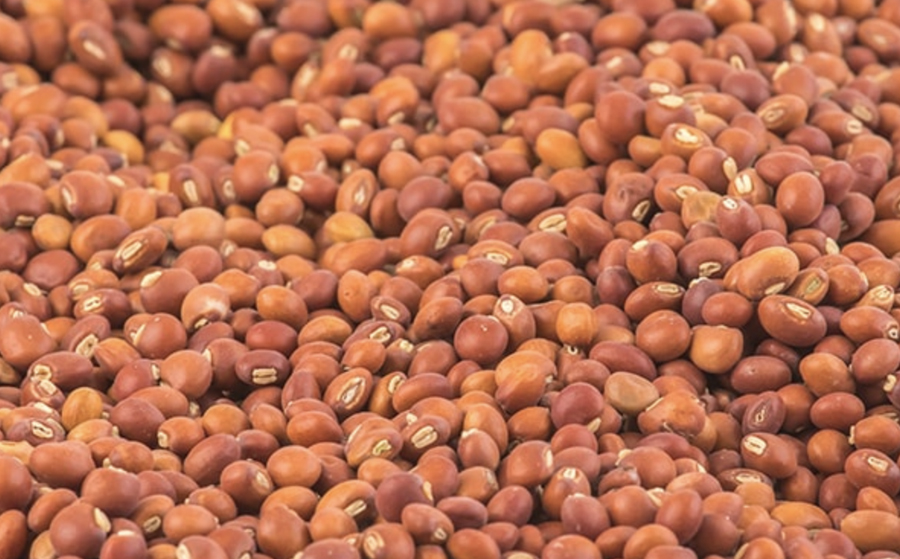December 22, 2020
IGrain’s Rahul Chauhan provides information on pricing and current inventories, as well as import figures and news from domestic and international markets.


Rundown of Indian Markets: IMPORTED PIGEON PEAS EXERT DOWNWARD PRESSURE ON DOMESTIC MARKET
Port
Pigeon pea (PP) imports are flowing into India after the government lifted restrictions. At the same time, new crop from Karnataka and Maharashtra is starting to arrive at markets. As a result of these new supplies, pigeon pea prices fell below MSP of Rs. 6000/100 kg at markets across various states.
Imported tuar, especially from Tanzania, is very economical compared to imports from Myanmar. With the continued arrival of imports, prices at various ports fell by Rs. 250-300. As a result, local market demand remained flat. Tuar Lemon traded in Mumbai at Rs. 5,450-5,550 and in Chennai at Rs. 5,400-5,425. The price of imported African Toor is Rs. 4,500-4,600. As new crop arrives at market, stockists and traders are selling off old stocks.
New Delhi
In response to the decrease in prices at ports, prices fell in Delhi as well. Tuar Lemon prices per quintal fell Rs. 100-300 and traded at Rs. 6,850 in Delhi and Rs. 5,900 in Maharashtra. Due to the farmer protest, the supply from Delhi to other states was reduced, impacting demand.
Karnataka
In Karnataka market yards, new crop started arriving. Dal manufacturers/processors are reluctant to purchase new crop as they have enough old crop stocks. In the previous week, PP prices dropped by Rs. 400-500 and traded at Rs. 5,600-6,050 in Gulbarga, Rs. 5,366-5,999 in Raichur and Rs. 5,086-5,856 in Yadgir. New crop tuar from Karnataka seems to be of good quality. High moisture levels were seen in initial arrivals but will improve moving forward.
Maharashtra
New crop started arriving in Maharashtra, as well. Stockist started selling old crop in a hurry. Last week prices dropped by Rs. 200-500 and traded at Rs. 5,400-5,970 in Latur, Rs. 5,000-5,700 in Amravati, Rs. 5,600-5,925 in Solapur, Rs. 5,000-5,700 in Jalna, Rs. 5,950-6,000 in Nagpur and Rs. 5,800 in Akola. Trading at reduced prices occurred in other small markets, too.
Others
Dahod Tuar traded at Rs. 4,750-5,300, down Rs. 200-300. Katni and Kanpur, Uttar Pradesh Tuar each fell by Rs. 100 and traded at Rs. 5,700-5,850 and Rs. 5,700 respectively. Raipur rates collapsed by Rs. 400-500 and traded at Rs. 5,800-6,100.
Tuar Dall/ Processed Tuar
Price decreases in raw tuar also pressured processed Tuar prices. Last week, processed Tuar dall prices fell by Rs. 200-500 and traded at Rs. 7,200-9,000/quintal. Demand may increase further.
-09.45.48.png)
-09.46.01.png)
Pigeon pea availability increases due to new crop arrivals and increased imports
The pigeon pea harvest in the major producing states of Karnataka and Maharashtra is in full swing. New crop has begun to arrive in all the major market yards. At the same time, imports are arriving from African countries and Myanmar, increasing overall availability and causing domestic prices to soften. Large producers and stockists with old crop inventories are worried and selling at lower rates. In Maharashtra's Solapur market yard, 7,000 bags arrived on the first day, which clearly indicates production figures are on the high side. The rate of arrivals may increase further.
Although earlier crops were damaged by various natural disasters, tuar survived the adverse climate because of its longer growing cycle. After October, the weather was favorable for the crop.
NAFED is selling Tuar from its stocks at a time when prices are under pressure. Imports put downward pressure on prices and will continue through the end of December. Most vessels will arrive at Indian ports by or before 31 December.
According to the available data, during the first eight months of the current financial year (April-November), India imported 2.97 lakh MT of pigeon peas. In FY 2019/20, 4.50 lakh MT of tuar were imported.
Millers nervous due to government selling below MSP
For marketing season 2020/21, the Central Government raised the minimum support price for pigeon peas from Rs. 5,800 to Rs. 6,000 per quintal. But NAFED is selling stocks at lower levels. This created panic among millers, who had purchased and maintained stocks at a higher price.
In previous weeks, NAFED was issuing tenders at Rs. 6,100 per quintal, but last week (on Monday) it accepted tenders in the range of Rs. 5,100-5,800 per quintal, which is Rs. 700 below the old MSP and Rs. 900 below the new MSP.
In the top two producing states, Maharashtra and Karnataka, the harvest of new crop arhar has already started. If Nafed is selling its stocks at Rs 700-900 per quintal below MSP, then how will farmers make a profit. This is the main point of the farmer protest.
BSF seized 45,000 MT of peas smuggled into India from Bangladesh.
The Border Security Force (BSF) patrol stationed at Muktapur Border Outpost (BOP) in West Jantia Hills District of the North Eastern Region of the state of Meghalaya succeeded in seizing a consignment of 45,000 kg peas laden on 58 indigenous boats that crossed the Indian border via the Lakra river. The smuggled peas were seized in the Bhilwara colony. The army took possession of the consignment before they reached the Indian trader. An army spokesperson said that such smuggling hurts the economy of the country and could affect the livelihood of Indian producers. BSF patrol operations will continue in the future and every effort will be made to stop smuggling. The border of India and Bangladesh is connected by a river route. There are dense forests in Meghalaya, hilly land and no fencing, so the smugglers often keep smuggling Pulses, Spices, Edible oils etc. Traders in Bangladesh import large volumes of peas from countries like Canada that is well in excess of their country’s domestic demand and requirement. Efforts are made to sell it in India because of a ban on the import of peas. In India, the rate of smuggling is increasing due to high pea prices. Many such cases had been reported earlier.
Abbreviations
Tuar/ Arhar: Pigeon Peas PP
Mung: Green Mung
Urad: Black Matpe
Chana: Gram
Matar: Pea
Masur: Lentil
Mandi: Market yard
Bhav: Prices
Dal/Daal: Processed Pulses (Directly for human consumption)
Rs: Indian Rupees (1$=Rs 73-74)
Rahul Chauhan
Director, IGrain India
igrainind@gmail.com
+91 9350141815
Twitter igrain_india

Rahul Chauhan / India / Tanzania / Myanmar / Pigeon pea / New Delhi / Karnataka / Maharashtra / Punjab / Haryana
Disclaimer: The opinions or views expressed in this publication are those of the authors or quoted persons. They do not purport to reflect the opinions or views of the Global Pulse Confederation or its members.